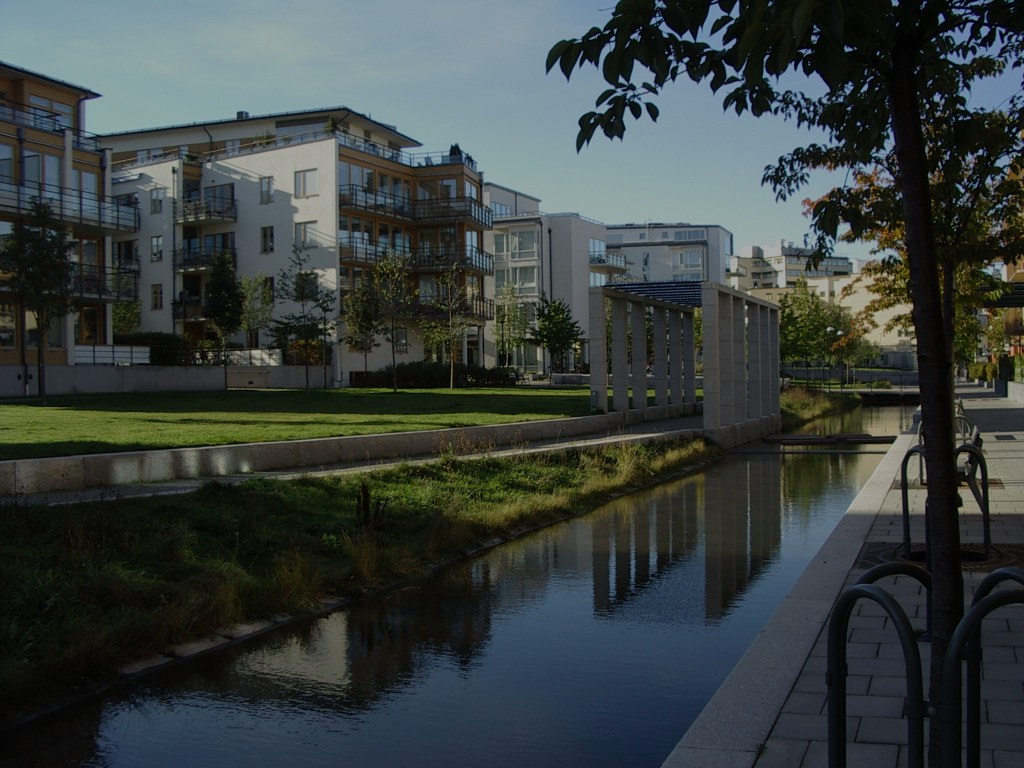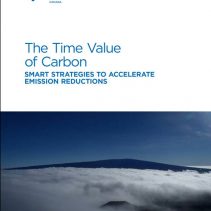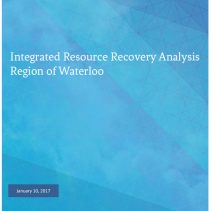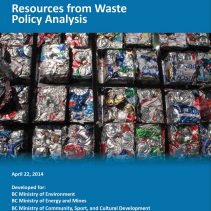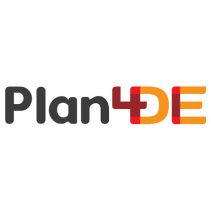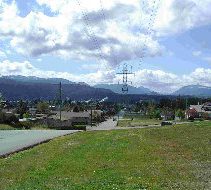The Time Value of Carbon
The Time Value of Carbon. Stephen was the lead author of the report The Time Value of Carbon: Smart Strategies to Accelerate Emission Reductions, which was published by the Chartered Professional Accountants of Canada in 2017. The report describes the strong effects on climate change of Near-term Climate Forcers such as methane and HFCs, and explains how current greenhouse gas accounting and reporting methods underestimate these effects. For example, the current greenhouse gas reporting practice is to account for the effects on climate of all greenhouse gasses over a 100-year time horizon. The choice of 100 years is arbitrary, however, and masks the very strong near-term effects on climate of gases with much shorter lifespans. Over a 20-year time-frame, methane...
Integrated Resource Recovery Analysis
Integrated Resource Recovery Analysis. In 2016, Stephen completed an Integrated Resource Recovery Analysis under contract to the Sustainability Solutions Group, to find opportunities to recover resources from waste in the Region of Waterloo. The Analysis compared options for the 100,000 tonnes per year of organic waste available in the region, and uncovered the following hybrid resource recovery concept: Organic waste could be diverted to a “Regional Bioenergy Centre”, where it would be processed in an anaerobic digester to produce biomethane and fertilizer which would be sold to generate revenues. If the Regional Bioenergy Centre is located near an existing industrial organization, it could be possible to use waste industrial energy to heat the digester as a...
Resources from Waste
Province of British Columbia, 2014. Resources from Waste Policy Analysis. In collaboration with the Sustainability Solutions Group, Stephen completed an analysis of options for recovering energy and other resources from solid waste. The clients for the study were the Ministry of Environment, Ministry of Energy and Mines, and the Ministry of Community, Sport, and Cultural Development, and the analysis was completed in three parts. The first part of the analysis addressed the question: How can we compare the environmental, economic, and social aspects of different solid waste management options? The analysis compared five solid waste management “archetypes” on the basis of environmental aspects (greenhouse gas emissions, criteria air contaminants), social aspects...
Project – Plan4DE
District energy is thousands of years old, and common in Europe. Given its many benefits, including greenhouse gas reductions, how can we foster its use elsewhere? Between 2014 and 2016 Farallon was part of a team that developed the Plan4DE, a modelling tool to accelerate district energy. Plan4DE is an interactive model, a kind of flight simulator for district energy planning. The model keeps the technical analysis in the background, and shows planners, modelers and decision-makers how they can optimize the design of a community for district energy. Users can see the effects of changing building density, building diversity (e.g. mixing commercial and residential in a community), energy efficiency, and multiple other factors on the viability of district energy....
City of Port Alberni District Energy System
Between 2009 and 2019, Farallon worked with the City of Port Alberni to find ways of reducing the city’s greenhouse gas emissions. Farallon’s work included the following: Completed an initial study of ways of recovering resources from waste, including producing Renewable Natural Gas from fish plant waste; recovering waste heat from local industry for distribution through a district energy system; replacing natural gas in local buildings with a district energy system based on waste biomass which was being disposed of in open burning. Completed a feasibility study for a district energy system based on biomass. The study included a detailed analysis of energy consumption in buildings which could be connected to the system. Developed a novel...
University of Victoria Biomass Energy Study
In 2013, Farallon was part of a team headed by FVB Energy and Dalkia Canada that was engaged by the University of Victoria to complete a feasibility study for a biomass energy system. Our work included evaluating the costs and benefits of a larger, community-scale district energy system, developing an anaerobic digestion facility to produce designated Renewable Natural Gas for the University of Victoria, and recommending advanced pollution controls to reduce emissions from biomass combustion. Farallon was also responsible for modelling criteria air emissions from a biomass energy systems, evaluating changes to greenhouse gas emissions that would result from replacing fossil fuel with biomass at the University, and for evaluating the quantity, cost, reliability,...
